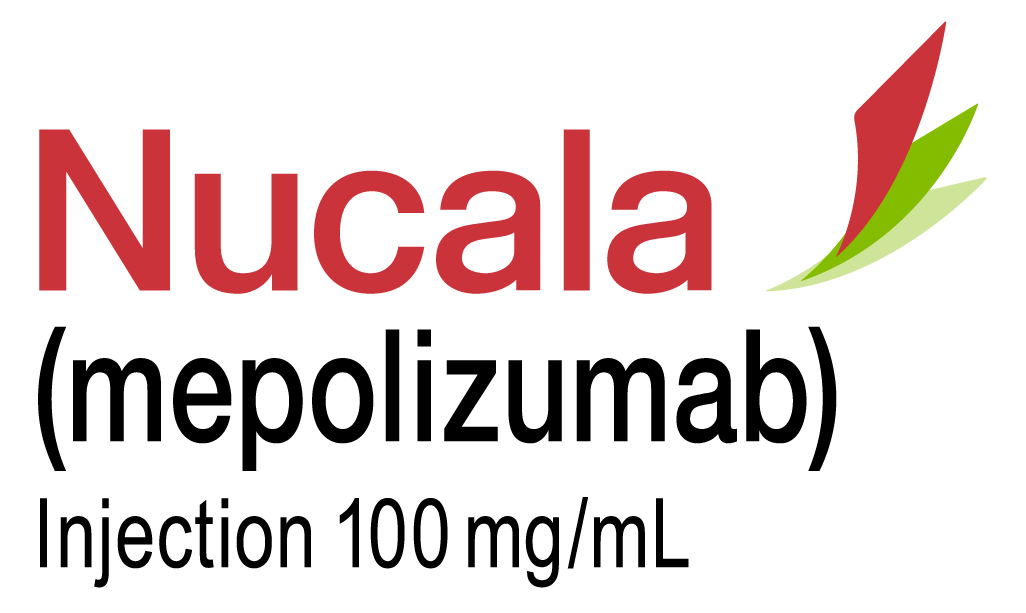Approved Use & Safety Info
Approved Use
Important Safety Information
Approved Use
NUCALA is an add-on, prescription maintenance treatment for patients 6 and older with severe eosinophilic asthma. NUCALA is not used to treat sudden breathing problems.
Important Safety Information
Do not use NUCALA if you are allergic to mepolizumab or any of the ingredients in NUCALA.
Do not use to treat sudden breathing problems.
NUCALA can cause serious side effects, including:
- allergic (hypersensitivity) reactions, including anaphylaxis. Serious allergic reactions can happen after you get your NUCALA injection. Allergic reactions can sometimes happen hours or days after you get a dose of NUCALA. Tell your healthcare provider or get emergency help right away if you have any of the following symptoms of an allergic reaction:
- swelling of your face, mouth, and tongue
- breathing problems
- fainting, dizziness, feeling lightheaded (low blood pressure)
- rash
- hives
- herpes zoster infections that can cause shingles have happened in people who received NUCALA.
Before receiving NUCALA, tell your healthcare provider about all of your medical conditions, including if you:
- are taking oral or inhaled corticosteroid medicines. Do not stop taking your other asthma medicines, including your corticosteroid medicines, unless instructed by your healthcare provider because this may cause other symptoms to come back.
- have a parasitic (helminth) infection.
- are pregnant or plan to become pregnant. It is not known if NUCALA may harm your unborn baby.
- are breastfeeding or plan to breastfeed. You and your healthcare provider should decide if you will use NUCALA and breastfeed. You should not do both without talking with your healthcare provider first.
- are taking prescription and over-the-counter medicines, vitamins, and herbal supplements.
The most common side effects of NUCALA include: headache, injection site reactions (pain, redness, swelling, itching, or a burning feeling at the injection site), back pain, and tiredness (fatigue).
Please see full Prescribing Information for NUCALA.

